Sharda University Admissions 2025
North India's Largest Educational Group | NIRF Ranked 86 | NAAC A+ Grade | Highest Package 1.6 Cr | Scholarships upto 100% | Application Closing Soon!
BEd full form is Bachelor of Education, is an undergraduate degree programme of 2 years duration, spread across 4 semesters. The course is essential for someone interested in working as a teacher at primary or higher levels (classes 6th to 12th). The National Council for Teacher Education (NCTE) regulates teaching courses in India. More than 6400 educational institutes offer the B.Ed course.
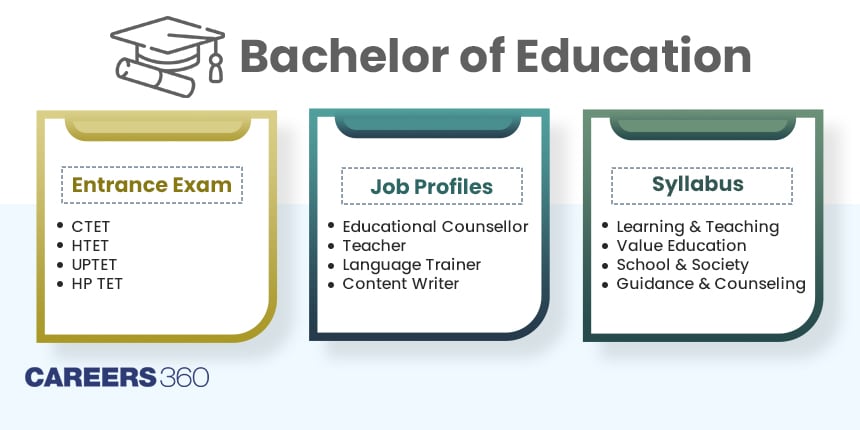
After graduation, students can opt for job profiles such as Educational Counsellor, Teacher, Language Trainer, Content Writer, High School Teacher, and Researcher. CTET is one of the popular entrance examinations for B.Ed degrees. St. Xavier's College, Lady Irwin College, Scottish Church College, Kolkata, and PWC Patna are the popular colleges.
The full form of B.Ed is Bachelor of Education. It is a full-time two-year degree programme for candidates interested in working as a teacher or in the field of academia. B.Ed is one of the most crucial qualifications for those interested in teaching in schools, colleges, and other educational institutes.
North India's Largest Educational Group | NIRF Ranked 86 | NAAC A+ Grade | Highest Package 1.6 Cr | Scholarships upto 100% | Application Closing Soon!
NCTE has decided to offer a B.Ed in a one-year full-time format. The two-year BEd course will be conducted in a part-time format for working professionals. This has been decided to offer a BEd course in a more flexible format.
In the table below, we have mentioned some of the important highlights of B.Ed (Bachelor of Education) course such as full form, course level, duration, entrance exams, eligibility criteria, admission procedure, fees, average salary, job profiles and top recruiters.
Particulars | Values |
|---|---|
Degree Name | B.Ed |
B.Ed Full Form | Bachelor of Education |
B.Ed Course Type | Undergraduate |
B.Ed Course Duration | 2 years |
B.Ed Entrance Exams | CUET PG, NTA NCET, CTET |
B.Ed Eligibility Criteria | Bachelor's degree in any stream |
B.Ed Admission process | Entrance Exam |
B.Ed Fees | Rs. 5,000 to Rs. 5 lakhs |
B.Ed Average Salary | Rs. 5 lakhs p.a. (Approx.) |
B.Ed Job profiles | Educational Counsellor, Teacher, Language Trainer, Content Writer, Highschool Teacher, Researcher |
B.Ed Top recruiters | Schools, Colleges, and Various educational institutions |
The course duration of B.Ed or Bachelor of Education is three years, spread across six semesters. Before enrolling in any particular college, students should check the course details. The average course fees for B.Ed range from Rs. 5000 to Rs. 1.15 Lakhs depending on the institute and subject of specialisation.
The course fees for B.Ed differ from one university to another and depend on the type of college. Before enrolling in any particular college, students should check the course details. The average course fees for B.Ed range from Rs. 5,000 to Rs. 1.15 Lakhs.
A qualified teacher is always in demand. As the population continues to grow, the demand for teachers will grow even further. The BEd is one of the most important degrees required by students interested in becoming teachers. Apart from teachers, candidates can explore a variety of job profiles and earn handsome salary packages.
The eligibility criteria for B.Ed differ from one institute to another. Candidates can check the eligibility details either on the official website of the institute or on the programme brochure. Listed below are the eligibility requirements for a B.Ed degree programme.
| Eligibility Parameters | Details |
|---|---|
| Educational Qualification | Bachelor's degree in any stream (science, commerce, and humanities) |
| Minimum aggregate score | 50 per cent (5-10 per cent relaxation for candidates belonging to the reserved categories) |
| Age limit | No specific upper or lower limit |
The admission procedure for B.Ed degree courses varies for the different institutes. For example, some universities conduct specific entrance examinations to take up admission to a B.Ed degree, while others offer admissions directly based on merit and not through some entrance examination. Thus, the process of admission shall be based upon the institute itself.
Here, in this section, we will be discussing some of the top teacher's training examinations.
Exam Name | Conducting Body | Exam Schedule |
|---|---|---|
| CUET PG | National Testing Agency (NTA) | |
| NTA NCET | National Testing Agency | - |
| CTET | Central Board of Secondary Education | CTET Exam Schedule |
Students interested in applying for jobs after completing their B.Ed degree, can apply for recruitment exams such as CTET and HTET and choose the career based on their specialisations.
In this section, we have provided the common B.Ed syllabus which is used by many teachers’ training colleges in India. The B.Ed syllabus is divided into two semesters and is also required to pursue internship and training programmes.
.png)
B.Ed 1st year syllabus covers the introductory subjects of the B.Ed degree programme. Some of the subjects are Childhood and Growing Up, Philosophical Foundation of Education, Language Across the Curriculum, Contemporary India and Education, and Understanding the Self. In the table below, we have discussed the B.Ed first-year syllabus.
Semester I | Semester II |
|---|---|
Childhood and Growing Up | Learning & Teaching |
Philosophical Foundation of Education | Contemporary India and Education |
Language Across the Curriculum | Understanding the self |
Understanding of Disciplines | - |
Critical Understanding of ICT | - |
PSE (Preliminary School Engagement ) | Practice in Teaching of 2 School Subjects (30 Lesson Plans) |
| - | School Subject Electives (Any one from each group) |
| - | Civics/Home Science/Biology/Maths/Geography |
- | Hindi/English/Science/Commerce |
BEd second-year subjects are Action Research, Assessment of Learning, School infrastructure, Guidance and Counseling. In the table below, we have discussed the 2nd year subjects of the BEd degree.
Semester III | Semester IV |
|---|---|
Practical | Theory |
Reading & Reflection on Text & | Gender, School & Society |
Action Research | Knowledge & Curriculum Perspective In Education |
Internship | Assessment of Learning |
Notice Register | Creating an Inclusive Education |
Attendance Register | Practical |
School infrastructure | Community Living Camp (1 Week) & Drama & Art in Education (School Visit 1 Week ) |
Continuous and comprehensive evaluation report | ECT |
Other Duties | Value Education |
Teachers diary | Guidance & Counseling |
- | Environmental Education |
- | Health & Physical Education |
- | Adult & Population Education |
- | Peace Education |
B.Ed graduates have a lot of career opportunities in the future. The top B.Ed degree institutes in each of the following states are listed below:
Several teachers’ training colleges in India offer a BEd degree. Students are admitted to the BEd degree based on their academic performance and admission exam results. Here is a list of the BEd colleges in India's popular cities.
While there are no separate specialisations in BEd degrees, students are required to choose specific subjects depending on their interests. For example, students who have studied medicine in their bachelor's degree might opt for subjects related to life sciences. Graduates having a degree in history, or humanities, can choose their subjects accordingly. The subject-specified syllabus is important because students who pursue the teaching profession have to impart knowledge in their educational field, thus they must gain in-depth knowledge of their subjects.
Bachelor of Education graduates can apply for employment as a teacher at a government or private institution. They can become a tutor for special education apart from traditional school education. Graduates can also pursue their higher studies in the field of graduation, or even apply for an M.Ed (Master of Education).
1. Teaching in Schools- After graduation, candidates can work at private and government schools as teachers.
2. Government Exams- B.Ed graduates can further apply for government examinations such as CTET to get a job at a government school.
3. Private Tutoring- Apart from teaching at schools, graduates can also start private tutoring, depending on their level of specialisation and choose which class students to teach accordingly.
4. Higher Studies and Research- Graduates can also pursue their higher studies in their subject area, M.Ed (Master of Education) is a popular choice.
B.Ed or Bachelor of Education is a basic requirement to work as a teacher. Apart from being a teacher, there are many other job profiles that a student can choose from. Some of the popular career options after B.Ed along with the respective salaries are given in the table below.
| Job Profiles | Job Descriptions | Average Salary |
|---|---|---|
| Teacher | A teacher is a professional who shares expertise, skills, and information with others, usually in a formal educational facility like a school, college, or university. The main responsibilities of a teacher are to encourage learning, support students' academic and personal development, and assist them in developing new skills, perspectives, and knowledge. | Rs. 2.9 LPA |
| Private Tutor | A private tutor is a person who provides students with personalised, individual assistance outside of an organised educational environment. To help students better comprehend and perform well in their academic courses, a private tutor provides further guidance and training. He or she can cover a variety of topics, such as math, physics, languages, history, music, and art. | Rs. 2.1 LPA |
| Education Counsellor | An educational counsellor is a specialist who provides instructions, counsel, and support to people or organisations looking for help with various areas of education. He or she usually has a deep understanding of educational systems, curricula, instructional strategies, and related topics. | Rs. 3.4 LPA |
The salary of a bachelor of education can not be reiterated in exact numbers, and the numbers will also vary according to the post held by such a person. For the trained graduate teacher (TGT) level, the B.Ed salary will comparatively be less than a Postgraduate Teacher (PGT).
Another factor that matters is whether the person is employed in a private school or institution, or is it employment under the government. In the table below, we have mentioned the private and government salary of a teacher.
Sectors | Job Profiles |
|---|---|
| Private | Rs. 3 LPA-Rs. 75 LPA |
| Government | Rs. 3 LPA-Rs. 50 LPA |
Source: AmbitionBox
In India, many private B.Ed colleges offer B.Ed degrees. Private universities are significantly more expensive than public universities. Some of the top private B.Ed colleges and also B.Ed fees are discussed below:
| Private BEd Colleges | BEd Fees |
|---|---|
Rs. 50,540 | |
Rs. 81,250 | |
Rs. 32,300 | |
Rs. 1 Lakhs | |
Rs. 1.25 Lakhs | |
Rs. 1.25 Lakhs | |
Rs. 1.44 Lakhs | |
Rs. 1.032 Lakhs | |
Rs. 63,940 | |
Rs. 51,250 |
A government college is less expensive than attending a private B.Ed college. Government B.Ed colleges are known for their high academic standards in India. The following are some of the best government B.Ed colleges and also B.Ed fees:
| Government BEd Colleges | BEd Fees |
|---|---|
Rs. 87,420 | |
Rs. 1.09 Lakhs | |
Rs. 32,590 | |
Rs. 1.21 Lakhs | |
Rs. 1.35 Lakhs | |
Rs. 1.03 Lakhs | |
College of Teacher Education, Maulana Azad National Urdu University, Hyderabad | Rs. 25,350 |
Rs. 1.15 Lakhs | |
Dibakar Patnaik Institute of Advanced Studies in Education, Berhampur | Rs. 9,380 |
Rs. 27,860 |
The BEd is one of the most sought-after professional degree programmes amongst students who have completed their bachelor's degree and want to pursue a career in academics. Candidates can be employed as teachers at primary, secondary and senior secondary levels.
It depends upon the institute that the candidate is applying for, as to whether the programme will be regular or in distance mode.
No, this again depends upon the institute applying for. There are some universities that conduct a specific entrance examination while some others just provide admissions on merit basis.
Yes, the basic educational qualification for pursuing B.Ed is having completed the bachelor of education degree with requisite marks. And thus, any additional degree will only add up to the candidate’s qualification only.
The exact answer to this question will depend upon the institute one may apply for. However, in such a case the marks obtained in post graduation should ideally overcome that of a qualifying examination.
B Ed full form is Bachelor of Education. Hardly anyone uses the B Ed full form anymore. It is commonly referred as B Ed by candidates. It is a full time two year course for applicants who want to opt teaching as their career path.
There are no such types of B Ed courses or specializations of B Ed or forms of education. In the education profession, B.Ed is an undergraduate degree and those who wish to pursue masters in the same have to go for M.Ed (Masters in Education).
The course duration of B.Ed course is two-years, with four semesters. It is an undergraduate degree for students aspiring to become teachers.
To pursue a Ph.D students have to pursue a master's level degree such as M.Ed. Once successfully clearing the M.Ed degree, candidates can apply for Ph.D courses.
HEllo,
If you want admission in an MSc and BEd integrated course , then you need to apply to universities or colleges that offer this course. Admission is usually based on entrance exams or merit, depending on the university.
Some popular universities like Regional Institutes of Education (RIEs) offer this integrated course. You can apply through the Common Entrance Exam (CEE) conducted by NCERT for RIEs.
Make sure you check the eligibility, which is usually 12th pass with Science stream (PCM/PCB), and apply before the last date.
Hope it helps !
Typically, (link unavailable) and B.Ed are two separate undergraduate programs.
- (Bachelor of Commerce): A 3-year undergraduate degree focusing on commerce, business, and related subjects.
- B.Ed (Bachelor of Education): A 2-year undergraduate degree that prepares students for teaching and education-related careers. Mostly graduation is needed
You can pursue these programs in different ways:
- Sequentially: Complete first and then pursue B.Ed.
- Integrated Programs: Some institutions offer integrated programs like B.A. B.Ed or B.Ed, but B.Ed integrated programs are less common.
If you're interested in pursuing both, research institutions that offer:
- Dual Degree Programs: Some universities might offer dual degree programs or integrated courses that combine commerce and education.
- Simultaneous Pursuit: You could pursue and B.Ed simultaneously, but this would require careful planning and might be challenging.
The Government College of Dentistry (GDC) in Indore does not offer a B.Sc. B.Ed. integrated course in the medical stream. GDC Indore mainly provides dental courses like BDS and MDS. If you are interested in B.Sc. B.Ed. (Medical Stream), you can check institutes like the Regional Institute of Education (RIE) Bhopal. They offer such integrated programs. Always check the official website of the college for eligibility and admission details before applying.
For more details you can visit the link given below
To get admission in B.Ed Special Education in Bhubaneswar, you must have a graduation degree with at least 50% marks. Admission is usually based on the Odisha B.Ed entrance exam conducted by SAMS Odisha. You need to apply online through their official website during the application period, upload required documents, and pay the fee. After the entrance exam, you can take part in the counseling process. Based on your rank, you’ll get a seat in a suitable special education college in Bhubaneswar.
For more details you can visit the link given below
https://university.careers360.com/colleges/list-of-bed-spled-degree-colleges-in-bhubaneswar
we do offer a range of resources for B.Ed entrance exams, including previous year's question papers and sample papers.
If you're looking for B.Ed entrance exam preparation materials, here are some resources you can explore:
- * Previous Year's Question Papers* : Career360 provides previous year's question papers for various B.Ed entrance exams, which can help you understand the exam pattern and difficulty level.
- *Sample Papers*: You can also find sample papers for B.Ed entrance exams on Career360, which can help you practice and assess your knowledge.
- * Online Mock Tests *: Career360 offers online mock tests for B.Ed entrance exams, which can help you simulate the actual exam experience and identify areas for improvement.
To access these resources, you can visit the Career360 website and search for B.Ed entrance exam preparation materials.
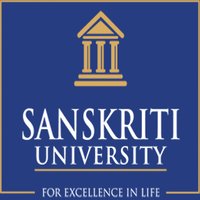
Best innovation and research-driven university of Uttar Pradesh
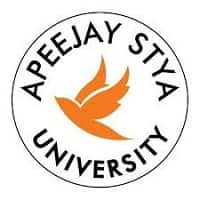
NAAC A Grade | Trans-Disciplinary Approach | Global Diversity
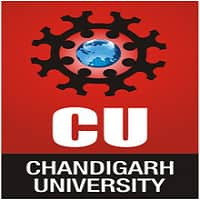
Ranked #1 Among all Private Indian Universities in QS Asia Rankings 2025 | Scholarships worth 210 CR
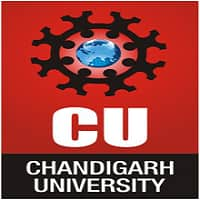
Admissions open for B.A + B.Ed & B.Sc + B.Ed | NAAC A+ Accredited
India's Largest University | NAAC A++ | 100% Placements Record | Highest CTC 2.5 Cr PA | 145 + Programmes in 55+ Disciplines | End Date : 15th Apr’25
Ranked amongst top 3% universities globally (QS Rankings)